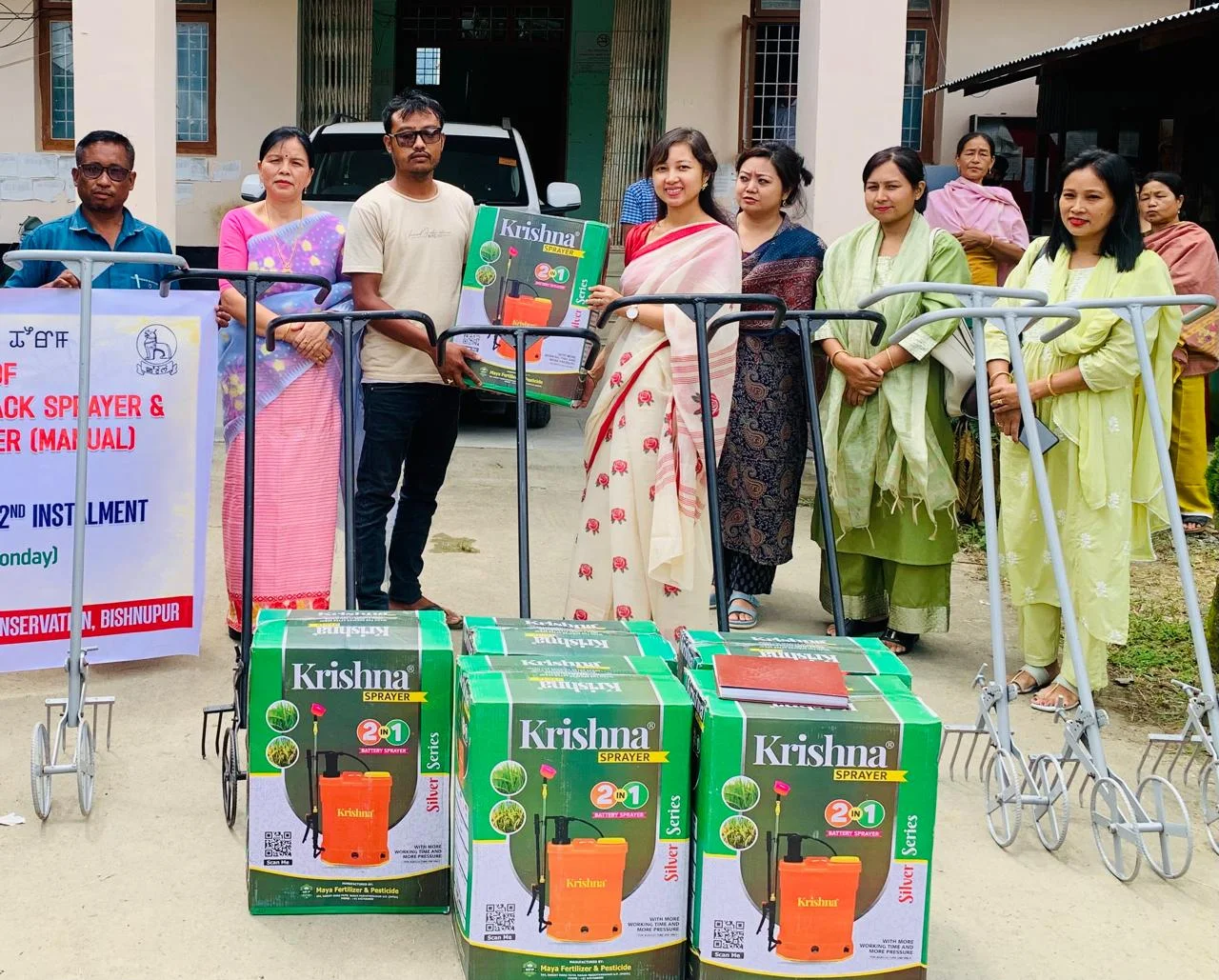Manipur DC Bishnupur Distributes Farming Equipment to 39 Beneficiaries Under RKVY — A Boost for Small Farmers and Local Mechanisation
Deputy Commissioner of Bishnupur district, Pooja Elangbam, led a distribution programme at the Mini Secretariat Complex, Bishnupur, where 39 farmers received farm equipment — primarily battery-operated knapsack sprayers and hand wheel hoes/weeders — under the Rashtriya Krishi Vikas Yojana (RKVY) – Cafeteria 2023–24 (2nd instalment). The move aims to promote mechanisation, improve horticultural productivity, and reduce manual drudgery for smallholders across the district.
In Bishnupur, Manipur, handing out 39 such devices under the RKVY scheme is exactly the kind of small, quiet intervention that can create outsized returns: less labour, better pest control, higher yields, and — crucially — more time for farmers to diversify or take up value-added work. The district administration, led by Deputy Commissioner Pooja Elangbam, ran this distribution as part of the central-state agri push; but the consequences are local, immediate, and deeply human.
What was distributed, who got it, and where it happened
On the day of the programme at the Mini Secretariat Complex in Bishnupur, the district administration distributed battery-operated knapsack sprayers and hand wheel hoes/weeders to 39 beneficiaries representing smallholder and horticulture-oriented households across the district. The implementation was part of the RKVY – Cafeteria 2023–24 (2nd instalment) allocation for Manipur, designed to push farm mechanisation and strengthen horticulture output. These pieces of kit were selected because they are low-cost, low-maintenance, and highly effective in the hilly, fragmented farm plots common to Bishnupur
FAQs
1) What exactly was given to the farmers in Bishnupur under the RKVY distribution?
Bishnupur’s district administration distributed battery-operated knapsack sprayers and hand wheel hoes/weeders to 39 beneficiaries selected under the RKVY – Cafeteria 2023–24 (2nd instalment). These are compact tools designed for small plots and horticulture crops.
2) Why are these small tools important — can’t farmers just hire labour?
Labour is expensive, seasonal, and increasingly scarce. Small tools reduce dependency on hired labour, cut working hours, lower health risks (e.g., from pesticide exposure), and allow farmers — especially women — to manage plots more effectively. For small, fragmented farms in Manipur, right-sized mechanisation is usually more practical than large machinery.
3) How were beneficiaries selected for the equipment distribution?
Beneficiary selection under RKVY typically follows district-level criteria — prioritising smallholders engaged in horticulture or identified as needing mechanisation support. Public events at the Mini Secretariat add transparency; district authorities publish lists and oversee handover. For precise selection criteria in Bishnupur, the DC office’s records and the RKVY project document would provide full details.
4) What follow-up support is needed to ensure these tools are used effectively?
Key follow-up includes hands-on training for safe and efficient use, regular extension visits, a local maintenance and spare-parts network, battery charging or swapping solutions, and linkage to market/aggregation support so increased production finds buyers. Without these, tools risk underutilisation.
5) Can other districts replicate this model? What should they avoid?
Yes — but replication must respect local contexts. Other districts can adopt the right-sized tool approach, combine it with training, and plan for maintenance and markets. The pitfall to avoid is one-off distribution without follow-up: that’s how good intentions become dusty storeroom items. Successful replication prioritises integration, monitoring, and local repair ecosystems.





